Should You Paint Ceilings and Walls the Same Color? Experts Give Their Verdict
Ever wondered — should you paint ceilings and walls the same color? We asked experts to weigh in on this trend, and offer their honest opinion
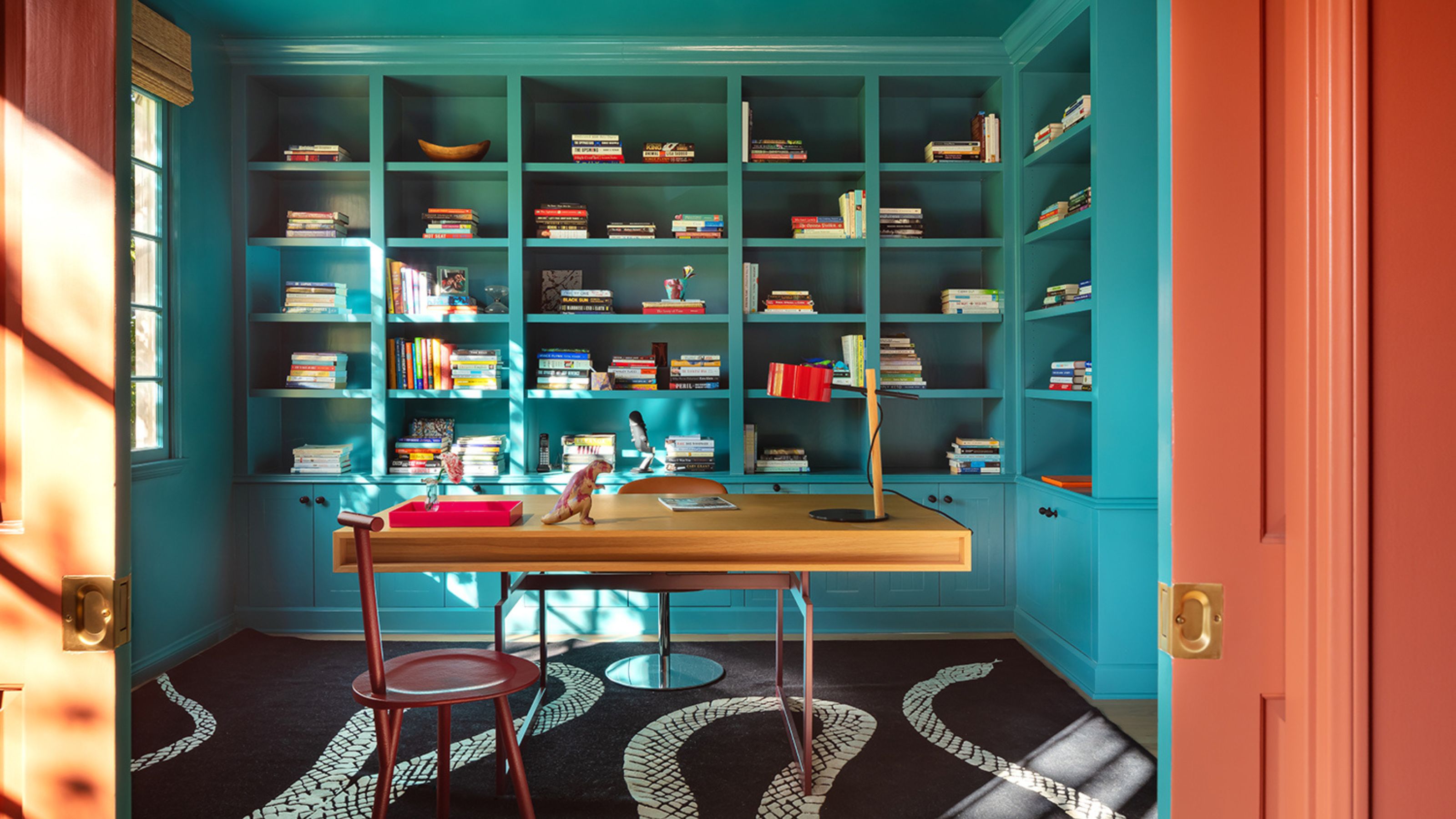

Have you noticed the recent trend where people are painting ceilings and walls the same color? At first glance it can seem like a bold move to make in your home, especially as it tends to be applied with bright or saturated colors. It raises so many questions: is it for everyone? Does it work with any color?
Known as color drenching, this painting technique can be applied to spaces of varied styles and even sizes. It can quickly change the entire feeling of a space — whether that's making it feel bigger or cozier. So if you're wondering whether you should paint your ceilings and walls the same color, the answer is yes.
To answer all of the most commonly asked questions, we consulted the experts for advice on how to do this trend right. Here's what they had to say.
Should you paint ceilings and walls the same color?
The simple answer is yes. Whether it's living room colors or bedrooms, this paint idea for walls and ceilings can be experimented with in a variety of spaces. Color drenching not only affects the overall atmosphere of a space, but also plays tricks with a room's proportions.
'The biggest advantage of color drenching is the calming uniformity it creates between all architectural details including walls and ceiling, window, floor and ceiling moldings, radiators, doors, and frames,' says interior designer Julia Mack, founder of Julia Mack Design.
There isn't, necessarily, a type of room that color drenching should be used for, but you might want to question whether a room would benefit from a different color on the ceiling and walls. Do you want a contrast to draw the eyes up to a feature ceiling, for instance, or would a tonal color complement the scheme more?
Regardless, the latest interior trends are seeing plain white ceilings losing favor, while bolder colors are taking over our interiors. But with such a bold statement, it's important to get it right. Here's are the things to keep in mind when color drenching, according to designers and paint experts.
1. Create a tonal scheme with paint and decor
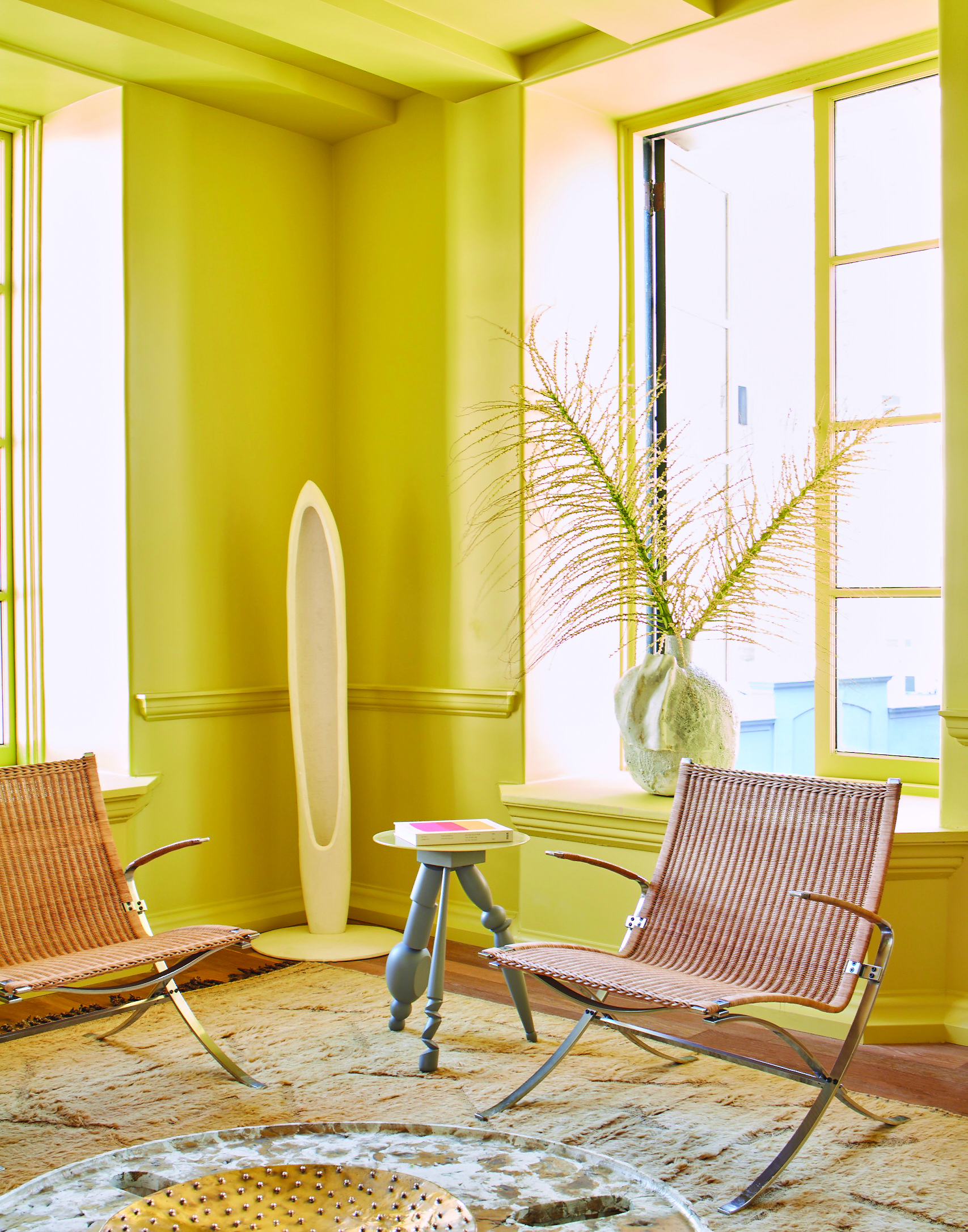
If you're redesigning a modern living room and are planning to color drench the space, consider bringing in decor and furniture elements that complement the room's paint tone. In this space designed by Kelly Wearstler, the beige/brown elements add a wonderful layering to the yellow paint and the room feels airy and relaxed.
'A yellow room evokes happiness and optimism so sticking within that tight tonal palette is imperative,' says Julia. 'Before painting carefully map out the yellow paint locations keeping in mind that the same color can be used in different finishes to achieve this impactful trend. Consider painting the walls and ceiling in a matte finish and all architectural woodwork including doors, trim, and moldings in the same yellow color or beige/brown but a glossy or semi-gloss finish which will create a nice depth and distinction between all architectural design elements.'
2. Use color drenching in a small room
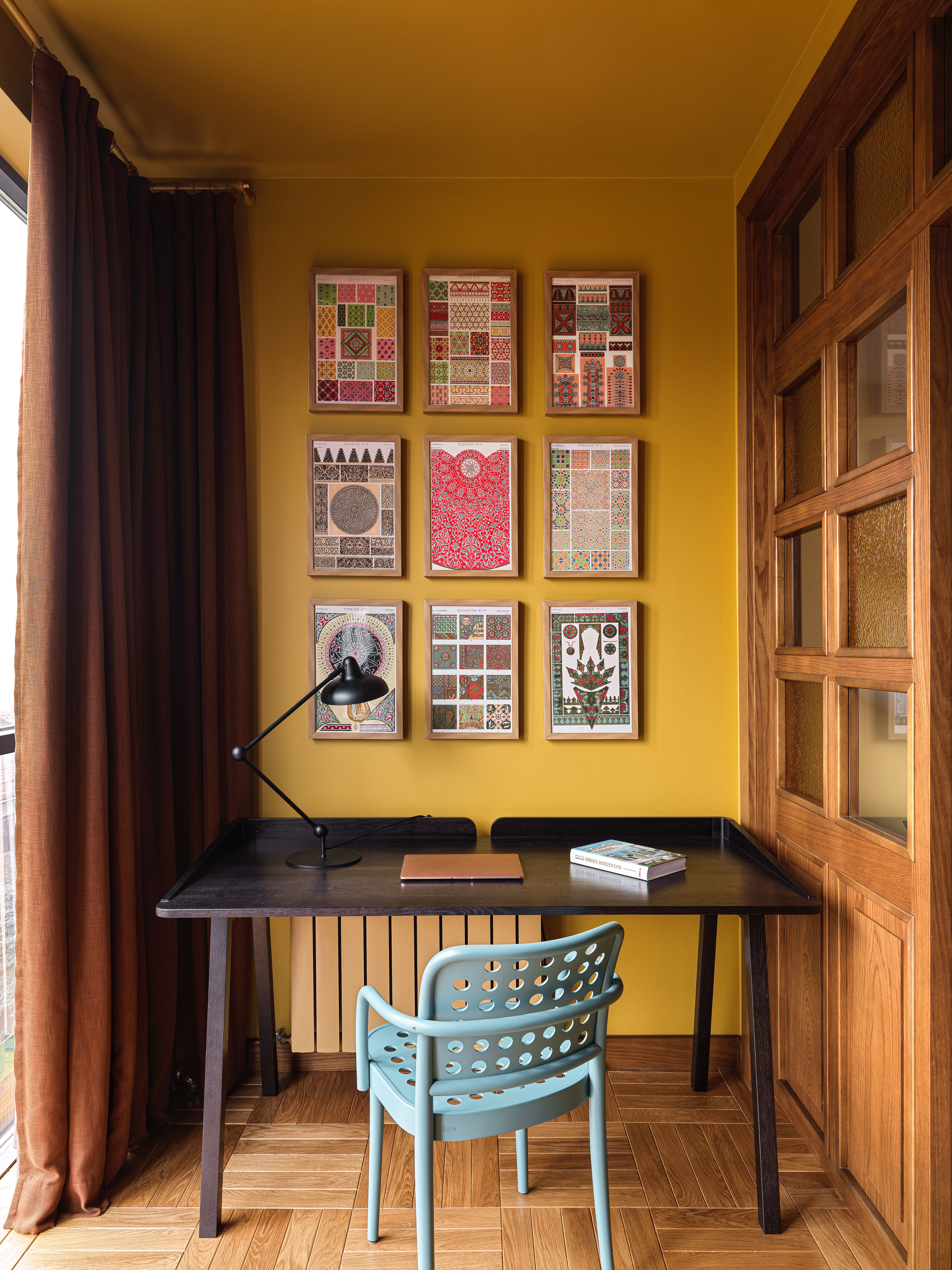
Many home decorators get hung up on the idea that a white ceiling means a brighter space that feels larger, but actually, the introduction of another color onto the ceiling can just serve to highlight the proportions of a small room. In this small home office, the dark tone injects a big personality into the space.
'The idea of 'drenching' a room, particularly a small space, is brilliantly bold and hugely effective in making a space feel bigger, seamless and contemporary,' says interior designer Lizzie Green.
3. Color drench a part of the room
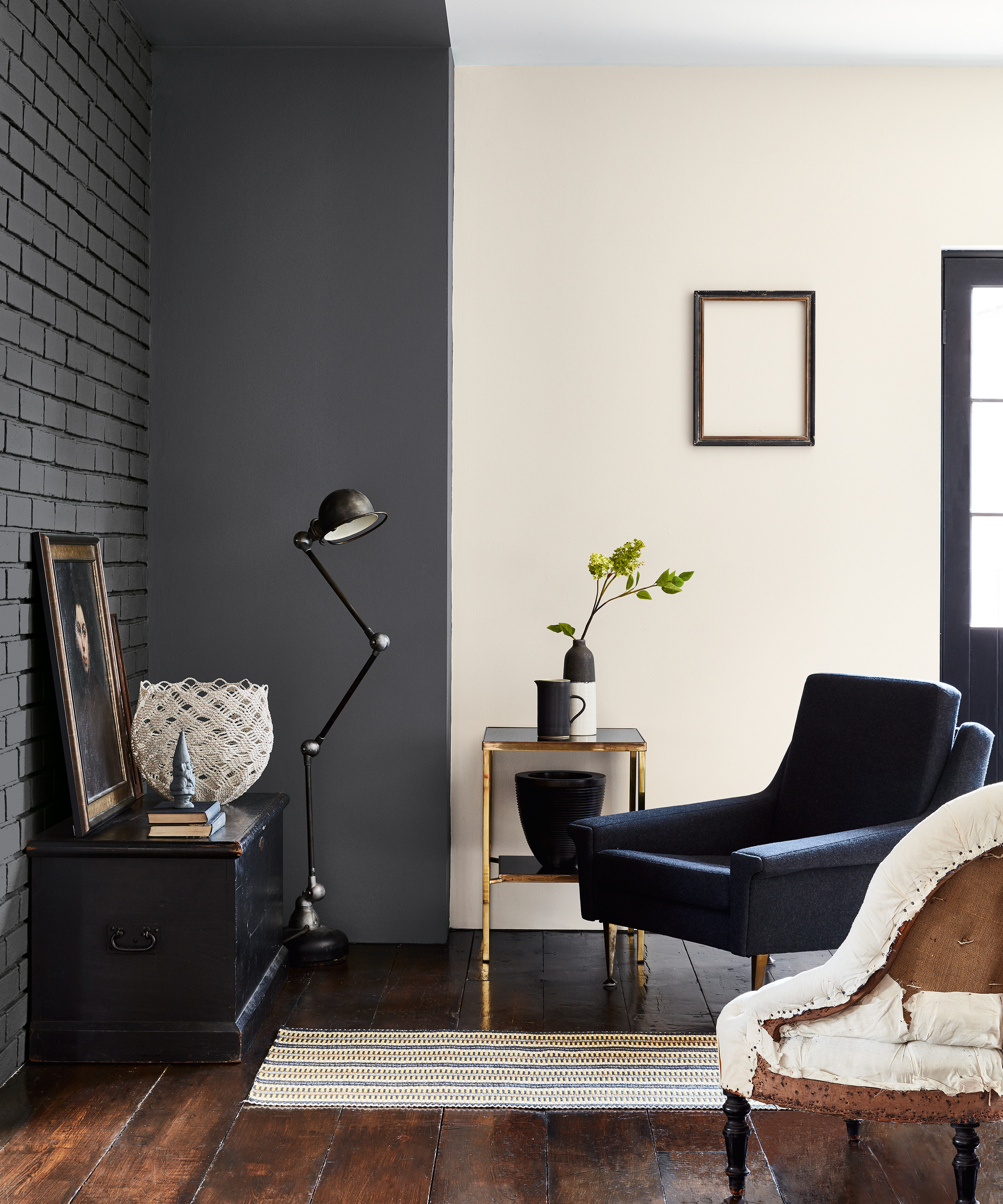
If you aren’t looking to decorate the whole space and are just creating a zoned area such as a home office area, consider your existing palette carefully.
'Accentuate a zoned space by drenching with color, including across the ceiling for a dramatic design feature,' says Ruth Mottershead, creative director at paint brand Little Greene. 'A contrasting color will clearly define an area, creating focus and design interest, whilst a more subtle color change such as using the same shade in a lighter or darker hue will create a more harmonious transition.'
'It’s important to consider how you use the wider space, a bold, vibrant zone works fantastically well in a kitchen, dining or living space,' Ruth suggests, 'whereas a more muted and calming approach will create tranquility for a relaxing bedroom.'
4. Include moldings and trims in your color-drenched look
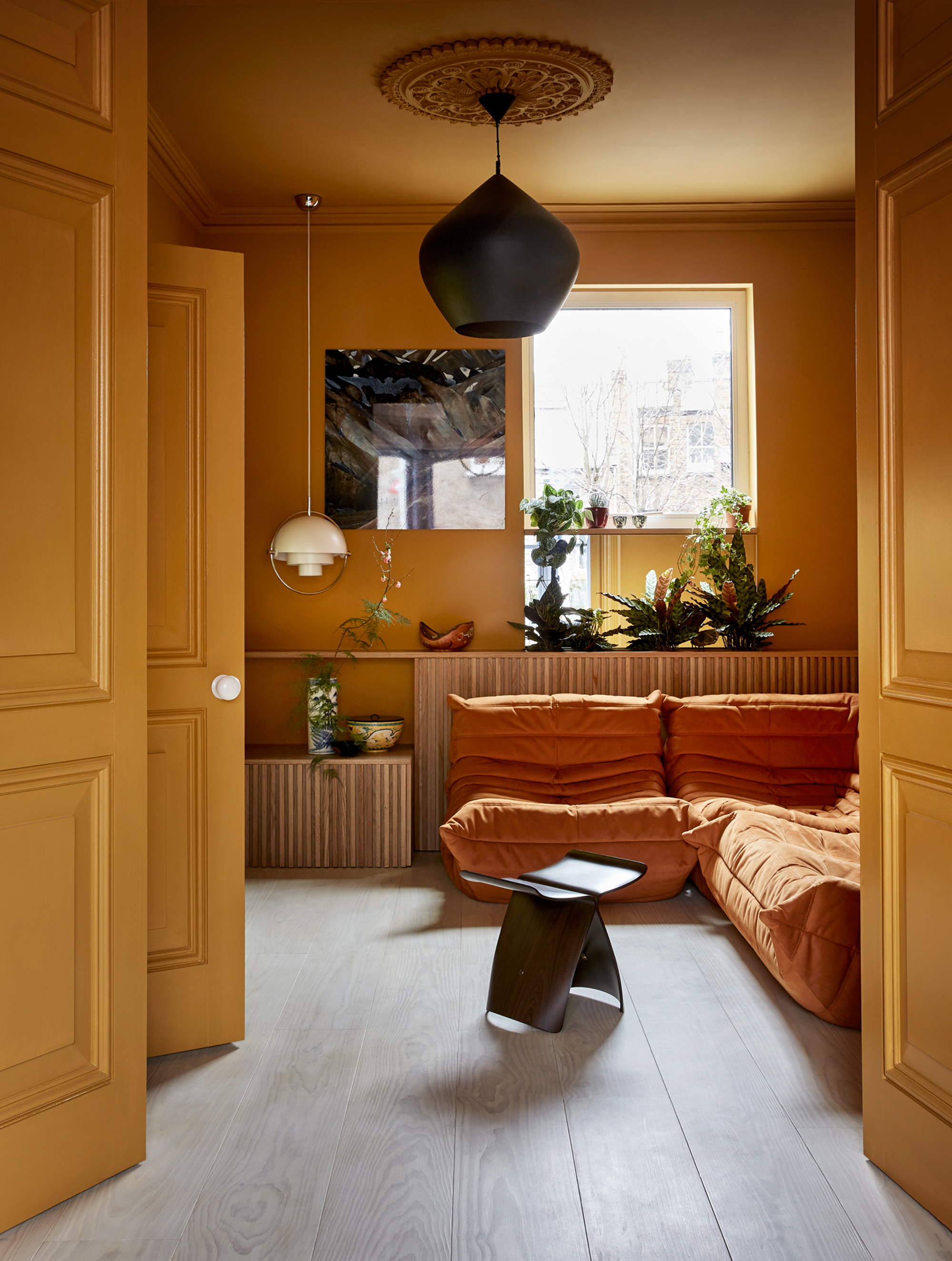
While painting the ceiling and walls the same color might count as color drenching, for a truly monochromatic color scheme include the other architectural elements of your room too.
In this space, created by interior design studio Collective Works, the color-drenching idea goes one step further, including not only the doors and cornicing but even the furniture that plays into the tonal look. 'The ceiling, walls, crown molding and doors are covered in the same color, to create a comforting cave,' says Siri Zanelli, founder of Collective Works. 'This room gives you a welcoming hug when you walk into it.'
5. Or experiment with contrasts
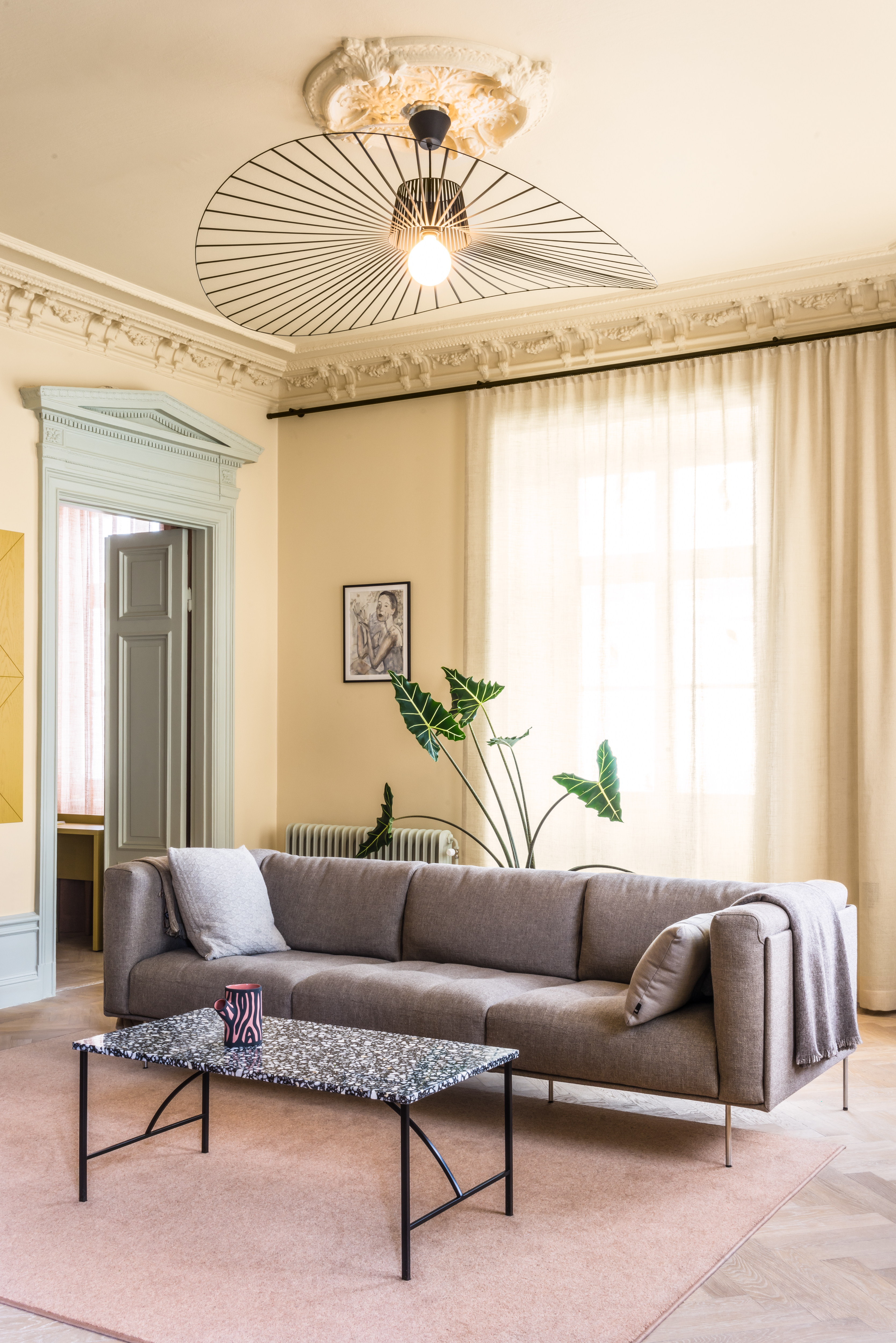
When painting over trims, doors and architectural moldings, they become much less about the visual structure of your room, and more about introducing a texture to the space. For a bold, ornate feature, this may actually help to modernize the look, but you could still opt for a modern color-drenched idea without painting every surface the same color.
In this space designed by Nordic design brand Note Design Studio, a contrast door trim idea has been retained, highlighting it as a beautiful architectural element, but also framing the transition into the next room, a kids' room which uses a similar yellow palette.
6. Shift tonally from room to room
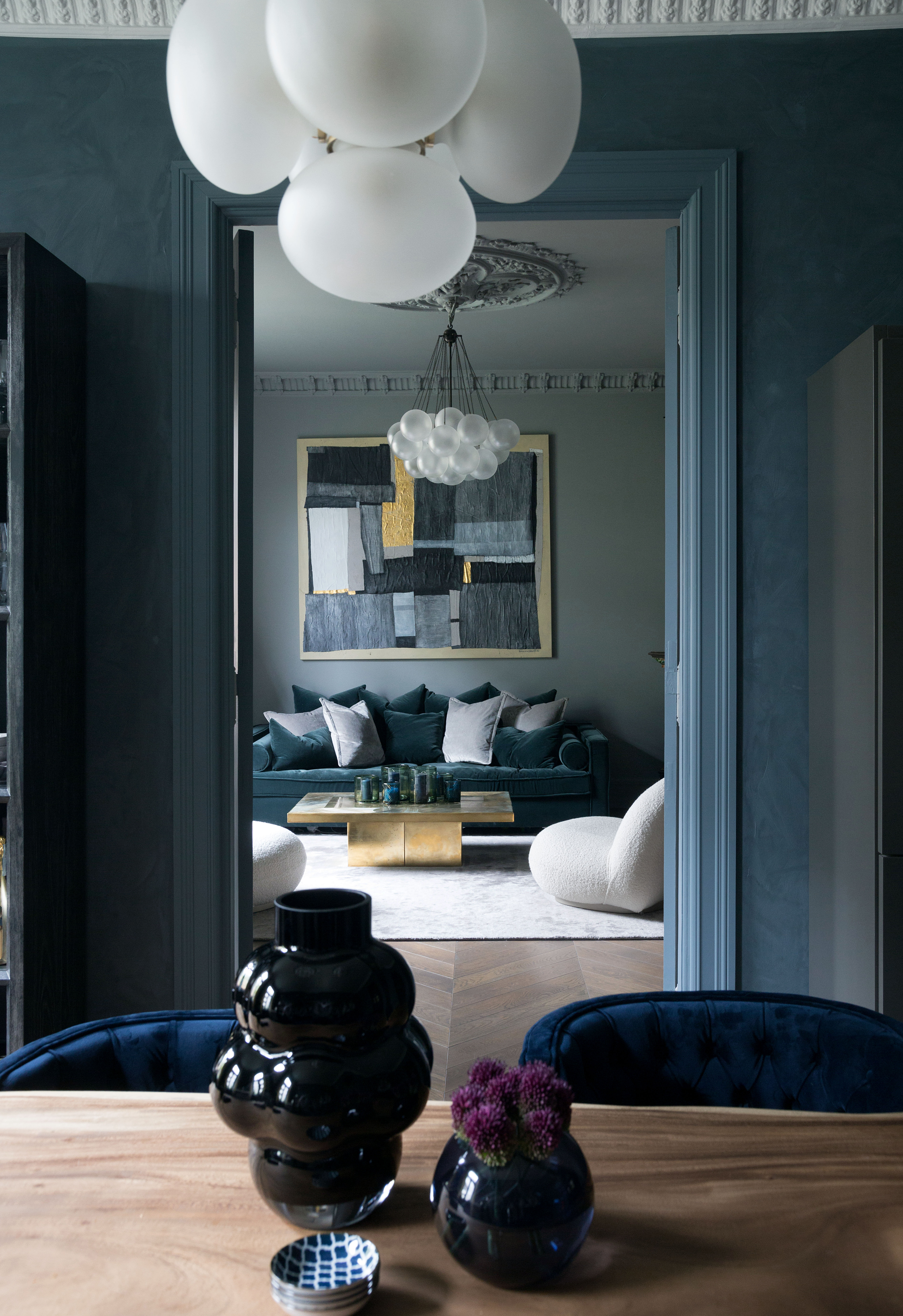
While you may only want to drench one room in a certain color, it's important your home still feels cohesive. Where different paint shades might have helped create a throughline in your space, why not try this tonal decorating idea by drenching adjacent rooms in similar shades?
'The dark Scandinavian winters make homeowners spend a lot of time inside,' says interior designer Hanne Gathe of Dactylion Design of this stylish blue-drenched space. 'This apartment has a moody color scheme that gives a cozy warm feel, from greys to blues and greens. '
'The sofa is in an emerald green that picks up on the blues, gives a contrast, but doesn't stand out. The result is striking but calm and cozy,' Hanne adds.
7. Or go bold with your contrasts
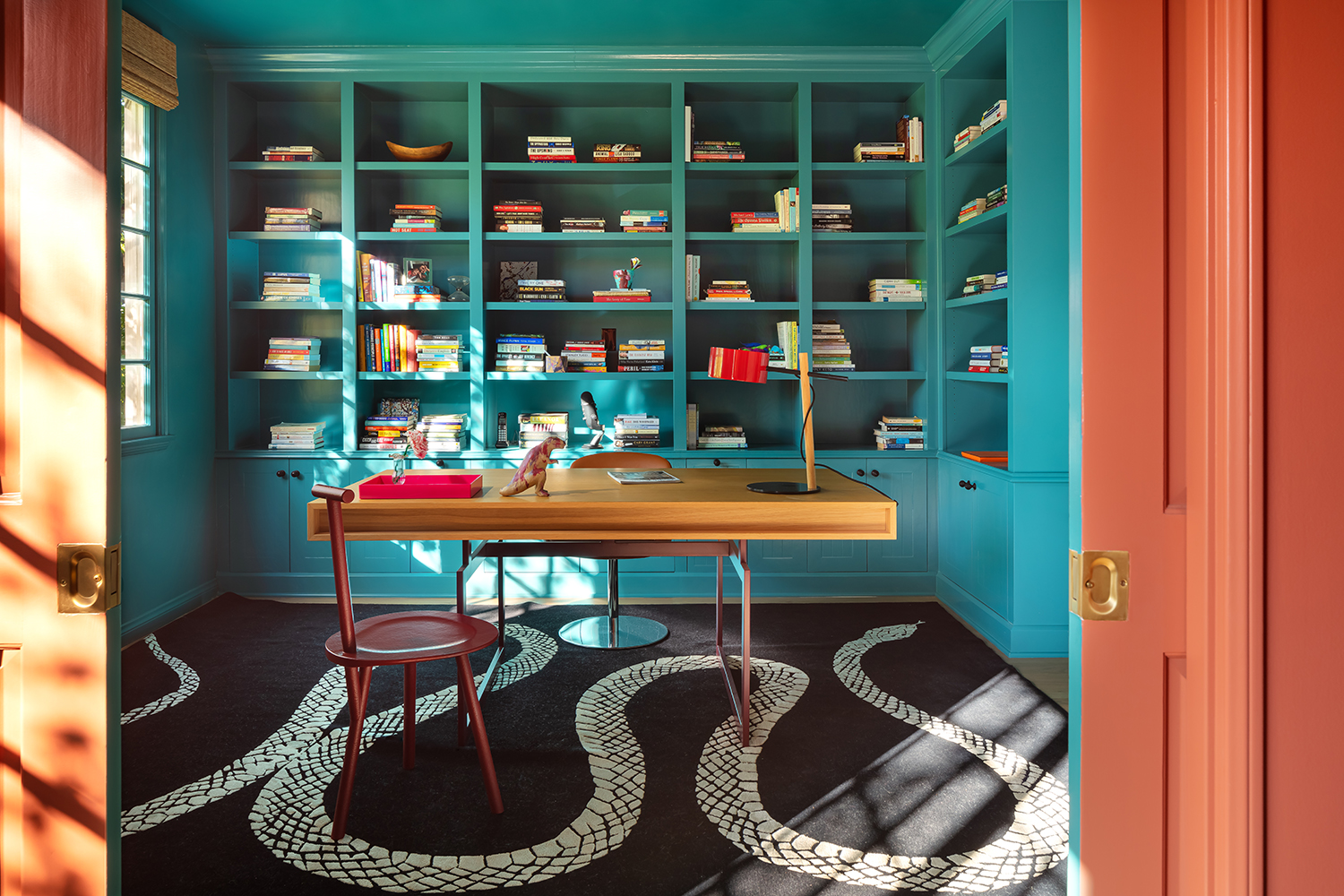
Alternatively, choosing boldly different colors to drench neighboring rooms can create an unexpected, invigorating effect.
This home office created by interior design studio Lala Reimagined contrasts a vibrant electric blue, Farrow & Ball's Vardo, with a rich, warm terracotta in the neighboring den. 'This home office is designed in the Hollywood Hills, and absolutely has a feel of a holiday,' says Azar Fattahi of LALA Reimagined. 'We believe in the art of living, and living well is having the feeling of a holiday no matter where the location is.'
Is it easier to paint the ceilings and walls the same color?
'Painting the walls, woodworks and ceiling in the same color is a great way of creating a cohesive vibe in a place, creating both depth and harmony,' explains Kathrine Errboe of paint brand File Under Pop. 'It ties the room together and creates a calm canvas for other elements.' It's why color-drenched rooms feel modern and fresh —there's a minimalism to them that gives even spaces with traditional features a contemporary feel.
Another benefit of embracing this trend is that it's much easier when you have to paint a room. You won't need to 'cut in' around the ceiling when painting your room, as long as you're using the same paint color and finish.
If you're color drenching around doors and trim, bear in mind that an eggshell or satin should be used for woodwork to ensure it's durable, and this difference in finish between the wall's matt emulsion might show if you're not careful in painting these elements separately. Of course, they'll show mistakes far less than painting a contrasting color for trims.
3 paint colors ideal for color drenching
The Livingetc newsletters are your inside source for what’s shaping interiors now - and what’s next. Discover trend forecasts, smart style ideas, and curated shopping inspiration that brings design to life. Subscribe today and stay ahead of the curve.

Aditi Sharma Maheshwari started her career at The Address (The Times of India), a tabloid on interiors and art. She wrote profiles of Indian artists, designers, and architects, and covered inspiring houses and commercial properties. After four years, she moved to ELLE DECOR as a senior features writer, where she contributed to the magazine and website, and also worked alongside the events team on India Design ID — the brand’s 10-day, annual design show. She wrote across topics: from designer interviews, and house tours, to new product launches, shopping pages, and reviews. After three years, she was hired as the senior editor at Houzz. The website content focused on practical advice on decorating the home and making design feel more approachable. She created fresh series on budget buys, design hacks, and DIYs, all backed with expert advice. Equipped with sizable knowledge of the industry and with a good network, she moved to Architectural Digest (Conde Nast) as the digital editor. The publication's focus was on high-end design, and her content highlighted A-listers, starchitects, and high-concept products, all customized for an audience that loves and invests in luxury. After a two-year stint, she moved to the UK and was hired at Livingetc as a design editor. She now freelances for a variety of interiors publications.


